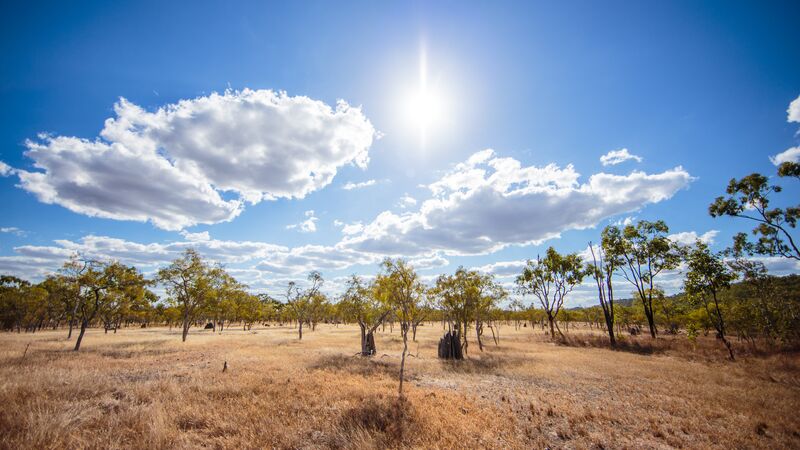Earth Day is coming up - a day that's all about celebrating and protecting our natural world. But in order to take meaningful action to protect the planet, you first must understand your impact on it. How? We'll show you.
This year's Earth Day theme is “Restore Our Earth,” calling on people to come together and do their part in preventing climate change and environmental destruction.
Intrepid - and, in fact, the travel industry as a whole - cannot exist without a healthy planet. Many of the world's most incredible places that travellers dream of visiting are at risk of disappearing due to climate impacts, from tropical reefs to the Arctic Sea.
We're proud to say we've been a carbon-neutral travel company for 11 years and are the only tour operator in the world with science-based climate targets. Our commitment to a cleaner and greener Earth is one we take seriously.
But to reduce your carbon, you need to know how much you emit. In 2018, we revised our reporting methodology in line with Climate Active under the Australian Government's Carbon Neutral Initiative, and we use an external consultant, Ndver, to measure our emissions. That's how we know that over the past 3 years we have emitted (and offset) over 79,000 tonnes of CO2.
We offset by purchasing carbon credits associated with a range of international carbon reduction projects. These projects include Gold Standard and Verified carbon standard certified projects, which bring additional economic, social and environmental benefits, including habitat and biodiversity protection. Since 2010, we've offset more than 351,000 tonnes of carbon emissions in total.

But what does all this mean for you, our travellers?
Firstly, it means when you book with Intrepid you can be assured we're doing everything possible to lower our carbon footprint and preserve the natural world through carbon-neutral tours. But more than that, we hope to inspire and encourage travellers to continue living their own low-carbon lifestyle, and actually give you the tools to measure, reduce and offset your emissions.
To start, we want to help you measure your emissions. Below you will find a calculator created by Carbon Footprint Ltd and RADsite Ltd, which considers factors like your gas and electricity use in your home, car mileage, public transit usage, flights and more, to calculate your personal carbon footprint.
Not sure where to start? Here are some easy ways for both at home and abroad:
- Fly less. We know you probably need to fly to get to many of the destinations you want to explore. But even when you do need to hop on a flight, there are ways to minimise your footprint. Stay in a destination longer whenever you can and experience the joy of slow travel. Avoid taking internal flights when a train or bus is an option. Not only will you be helping the planet, but you'll also get to know your destination better.
- Eat less meat. You don't need to go full vegan, but even swapping the occasional meal for a vegetarian option can help. Cattle ranching alone accounts for 80% of global deforestation and is responsible for 3.4% of global emissions, reports the World Wildlife Fund. This is because of the massive amount of feed, water and land required to produce red meat. While scientists continue to research how our diet impacts the planet, most experts agree cutting down on red meat is the best option.
- Avoid fast fashion. The United Nations reports the fashion industry is responsible for 10% of global greenhouse gas emissions - that's more than the aviation and shipping industries combined. Buying sustainably produced clothing (look for Fairtrade or a similar logo) will ensure you're not adding to that number.
- Unplug. Literally. Even when electronics are turned off, they still suck power from the outlet. Unplugging devices when you aren't using them will both reduce your energy bill and your footprint (since most electricity still comes from fossil fuels). Of course, some appliances like fridges and freezers need to stay plugged in, but if you're in the market for a new one, make sure it's energy-efficient.
- Rethink how you go on the road. Going carless for a year could save about 2.4 tonnes of carbon dioxide, according to a 2017 study by Lund University and the University of British Columbia. How can you stop using a car? Try taking a train, bus or better yet, ride a bike. If you need to use a car and local transport isn't an option for you, be sure to get your car serviced regularly and go easy on the gas pedal and brakes to reduce your fuel usage.
After you've critically reduced your emissions, you can also offset your own unavoidable emissions. One way you can do that is with Ecologi, an online subscription service that plants trees and partners with climate projects all over the world. Together with Ecologi, Intrepid is growing the world's first travel-powered forest - and we'd love for you to join us.
Together we can help create a more sustainable planet. But we can't do it in isolation. If we collectively commit to measuring, reducing and offsetting our emissions, using all the tools above, we can tackle the climate crisis together and continue to see the world.






